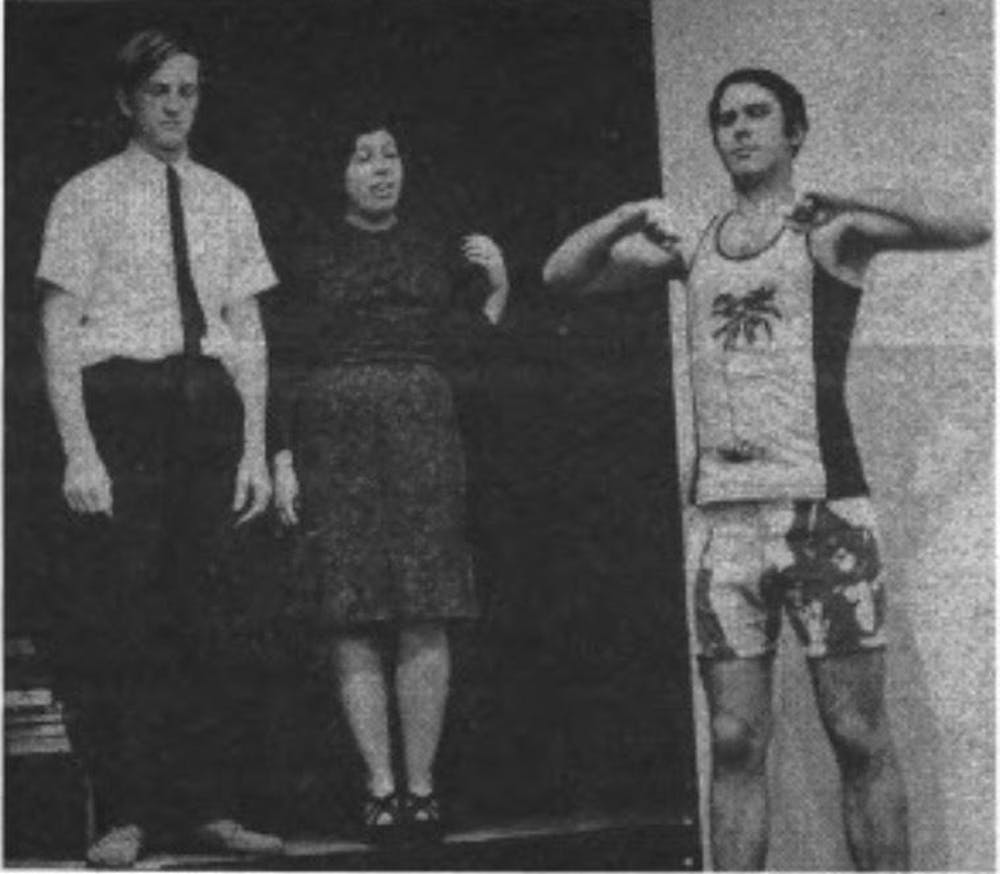Winnie Holzman ’76 never imagined her work would be so popular.
Holzman wrote the book of the musical “Wicked,” as well as the screenplays for its movie adaptation, “Wicked: Part One” and “Wicked: Part Two,” alongside composer and lyricist Stephen Schwartz.
The stage musical, which opened in 2003, defied expectations: it surpassed $1 billion at the Broadway box office and is the second-highest grossing Broadway musical of all time, behind “The Lion King.” “Wicked: Part One” has broken numerous box office records, including having the best opening box office of any Broadway movie adaptation.
“My Princeton self would be blown away, would be speechless with wonder,” she told The Daily Princetonian in an interview.
The movie, which stars Ariana Grande and Cynthia Erivo, has been decades in the making — there was a non-musical adaptation of the “Wicked” novel by Gregory Maguire in the works at Universal Pictures before Stephen Schwartz pitched the musical concept. But Schwartz pitched the concept to Universal and to Holzman, and the partnership would change Broadway for good.
Now, Holzman says the movie came together now because the timing was right.
“The timing, when we look back at it now, is perfect.” Holzman said. “At the time, it was just not ready. The scripts hadn’t come together. No one felt ready or prepared to go forward. And I think we were lucky in that no one was hustling us into production.”
“We were trying to delve down more deeply into certain key moments. So we needed time in order to do that right.”

The process was many layers of adaptation — the movies are adaptations of a musical, which is an adaptation of a book, which itself is a prequel of “The Wizard of Oz.” Holzman told the ‘Prince’ that the process of adaptation is all about what the writer thinks makes sense.
“You’re using your own instincts — what gets you excited, what gets you inspired, and what doesn’t — and I think it’s all about that,” Holzman explained. “It has so much to do with what, what you’re drawn to, what you wish you could see on stage. You know what you think is interesting, what you want to explore and what you don't want to explore.”
Holzman said that when adapting the movie, it was important to find the balance between doing new things while still staying true to the original show — after all, there are some things that cannot change.
“There are things that a movie is capable of, that you can’t do on stage, so there’s no real point in adapting it into a movie if you’re not going to take advantage of those cinematic possibilities, right?” she said. “But at the same time, we wanted to be true to the spirit of our show. We didn’t want to lose our show in the process. And so you’re constantly, constantly walking this delicate balance.”

“[Keeping that balance] was my job the whole time — that was all of our job,” she continued. “We didn’t want a carbon copy of the show. We wanted it to be its own thing, a new creation, that stays true to the spirit of the show, but that was something new.”
Part of making the movies something new was adding material — the first movie alone is as long as the full Broadway production.
“There were certain places that we felt could be told more in-depth, that we could elaborate on,” she said. “It wasn’t about making it longer, because that’s not an interesting idea. Can we add more, can we give more detail? Can we give more emotion in a certain place? Can we take more time?”
Holzman told the ‘Prince’ that she has always wanted to be a writer, including during her time at Princeton.
“When I was actually at Princeton, what I was writing for most of that time was poetry,” she said. “I was an English major with a concentration in creative writing. And the creative writing I was doing was poetry writing. I did that for four years, and it turned out to be a really great background.”
But while she was writing poetry, Holzman says “My heart was at Theatre Intime.”
“We were putting on our own shows, and we were bonding, and we were making theater, and that’s my happiest memory of Princeton,” she said. “What’s funny is that here I was at this very academic, buttoned up place … so here I was in that environment, but I was almost behaving as if I was in an arts program.”
“And back then, there was no theater department at Princeton,” she continued. “The theater was extracurricular, and I loved that. It was so great, because it was just like we were doing it out of sheer love.”
Holzman followed that love and turned it into her career. That’s the advice she gives, she says: follow what you love and keep doing it.
“Writing begets writing. So if you really do want to write, create your own ways to start writing and to keep writing,” she said. “The hardest thing is when you're young.”
Charlie Roth is a senior News editor and assistant Data editor for the ‘Prince.’








